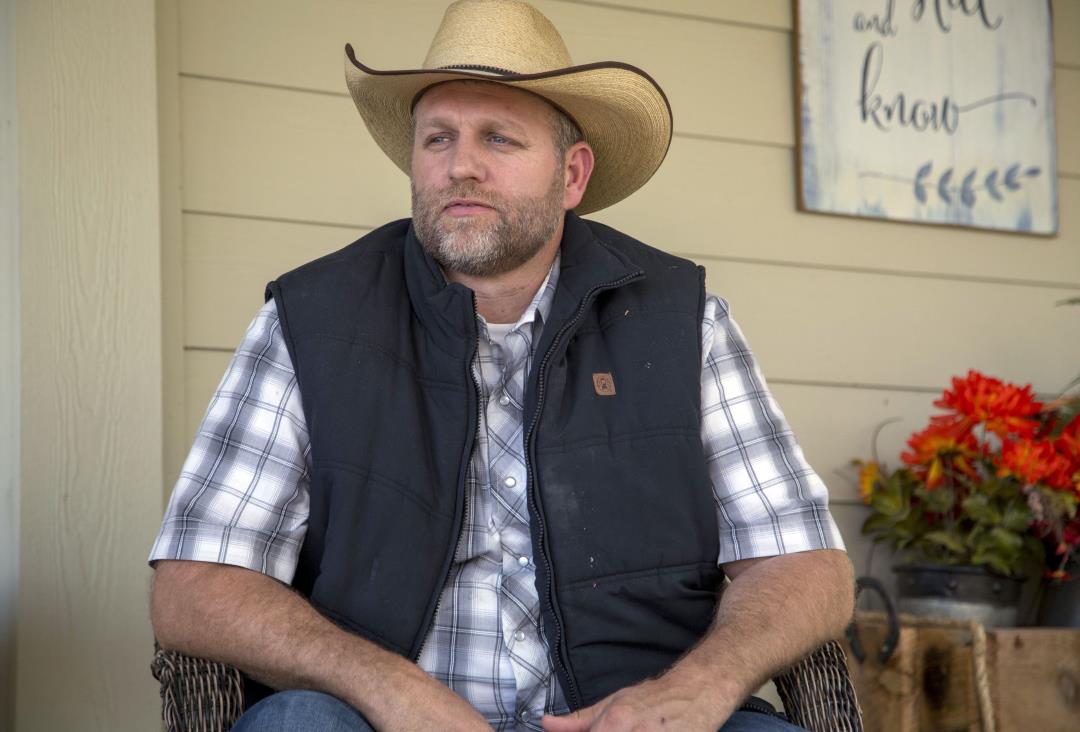Oregon
Oregon colleges, universities weigh potential outcomes of US Supreme Court decision on affirmative action

The U.S. Supreme Court could decide as soon as this week on cases challenging race-conscious college admissions practices, also known as affirmative action.
Some legal experts say it’s likely the court rules that colleges can no longer consider race when making admissions decisions. In Oregon, many colleges are already working to figure out how that type of decision could affect admissions processes and future students.
At the private Lewis & Clark College, President Robin Holmes-Sullivan said the institution uses a “holistic” approach to review student applications. The consideration of race is part of that, and Holmes-Sullivan said the college plans to welcome its most ethnically diverse group of undergraduate students to campus this fall.
“LC students are encouraged to view the world through a variety of different lenses as part of their education. Interacting with people from all kinds of different backgrounds is an important aspect of students’ preparation to live, work and lead in an increasingly diverse society,” Holmes-Sullivan said in a statement to OPB.
Holmes-Sullivan said the Portland college will carefully review the Supreme Court’s decision when it arrives in order to understand the impact.
FILE: Lewis & Clark College reflecting pool and Frank Manor House.
Hanin Najjar / OPB
“We will remain in compliance with all federal laws and guidelines,” she said. “But we will also remain strongly committed to fostering an institutional culture that values diverse perspectives and a community where everyone belongs.”
David Schraub, an assistant professor at Lewis & Clark’s Law School, said it seems “more likely than not” that the Supreme Court will reverse many years of legal precedent that allowed affirmative action at colleges and universities. The biggest questions are just how sweeping the court’s ruling will be and “how aggressively it will instruct lower courts to police university admissions decisions going forward,” Schraub said.
But Schraub said it’s doubtful that universities will just give up on racial diversity on campus, regardless of the court’s ruling.
“If the court bans race-conscious admissions standards, colleges will probably seek to find race-blind admissions criteria that nonetheless have the effect of admitting diverse entering classes,” he said.
Some colleges in Oregon already do not use race-conscious admissions practices. Portland State University is one of them, yet it continues to enroll some of the most racially diverse student cohorts across the state’s public universities.
People of color made up nearly 40% of the students enrolled at Portland State last fall, making PSU the most ethnically diverse school out of the largest universities in the state.
The University of Oregon had a population of about 33% students of color last fall while Oregon State University had just under 30%.
Chuck Knepfle, PSU’s vice president for enrollment management, said there are many reasons why Portland State continues to enroll students of color without having to rely on race-conscious admissions. He said the university has good support structures for low-income and first-generation students, many of whom also happen to be students of color. The school also does direct outreach to community organizations focused on communities of color, such as Self Enhancement Inc. — a nonprofit serving Black youth and families.
“We have a very good reputation of taking students who are first-generation and low-income and bringing them out of generational poverty,” Knepfle said. “We’ve been recognized as a school that has a lot of parity in how our Pell Grant and non-Pell grant students succeed.”
But admitting students is only half the battle. Knepfle said support through PSU’s cultural resource centers, like the Native American Student Center and La Casa Latina Student Center, helps give students of color a sense of community and belonging on campus.
Although a decision against affirmative action from the Supreme Court might not directly impact PSU’s admissions practices, there are still concerns on campus.
“Portland State believes that as many people as we can get to go to college, whether they come to Portland State or not, that’s important,” Knepfle said. “So if a negative ruling on admission comes out and fewer diverse students are being admitted to a fewer number of colleges, it’s bad for the country. It’s bad for the world.”
Knepfle said there’s a lot of uncertainty over how strict the Supreme Court’s ruling could be. If, for example, the court rules that colleges and universities cannot even ask for students’ race or ethnicity on applications, that could upend parts of PSU’s enrollment process — such as letting students of color know about culturally-specific resources on campus before they decide on PSU.
“If we don’t have that information until they enroll, that’s not something we can talk to them about,” Knepfle said. “So losing the data, even though we’re not using it for admissions decisions, would hurt us and hurt the students going forward.”
Knepfle also has other worries about the Supreme Court’s decision; for example, it’s unclear whether the court might go beyond admissions and also rule that student support programs or scholarships cannot be race-based.
Although Oregon institutions are wrestling with the potential impact of the court’s upcoming ruling, “race-blind” admissions already exist in some places. Multiple states, including Washington and California, have already banned the use of race in admissions decisions.
According to the Los Angeles Times, the number of Black and Latino incoming first-year students declined by nearly half at UCLA and UC Berkeley in 1998, the first year of California’s ban on affirmative action.
The number of incoming freshman students of color enrolled at the University of Washington fell by roughly 30% in 1999, after the passage of Washington’s anti-affirmative action law, according to the university.
Voters rejected an effort to bring back affirmative action in Washington in 2019.
In almost all states that banned affirmative action, selective colleges with low admission rates have seen less Black and Latino representation on campus, according to a report out of Georgetown University earlier this year.
Still, Knepfle with PSU said he’s hopeful Oregon colleges and universities will “keep up the fight” regardless of what the court decides.
“Although we’re not expecting a super positive result, we being the education community, it could be written in a way that still allows us a lot of flexibility and a lot of options, and there will be schools who push those to the limit because they believe in this,” he said. “The things that I’ve read and how frustrated people are and the things that they’re going to try, it gives me a lot of hope in our education system and in Oregon especially.”
Ben Cannon, the executive director of Oregon’s Higher Education Coordinating Commission, also said in a statement that he has faith Oregon’s higher education institutions will stay committed to supporting students of color.
He said his agency will continue to work with the state’s colleges and universities on “policies and strategies that continue our progress towards ensuring that all students are welcomed and have the opportunity to thrive.”

Oregon
Ham Radio Operator Leaks Far-Right Group's Oregon Plans

A far-right anti-government group appears to be making inroads into the Republican Party at the grassroots level. The Guardian reports that at least 66 members of People’s Rights Oregon 5, a subgroup of the People’s Rights Network founded by anti-government militant Ammon Bundy in 2020, ran for positions in three Oregon counties this week. It’s not clear exactly how many were elected as Republican precinct committee persons—PCPs—but some of them faced no opposition. PCPs elect Republican leaders at the county level and the People’s Rights Oregon 5 effort appears to be a “coordinated attempt to capture the local Republican party infrastructure,” reports the Guardian.
The Guardian says it was informed about the group’s activities by an amateur radio operator who intercepted and recorded dozens of hours of conversations on a private radio network set up by the PRN. In the Oregon group’s early years, the conversations mainly focused on efforts to counter COVID mask and vaccine mandates, but they were later dominated by discussion of local Republican politics—especially after members were able to take control of the GOP central committee in Deschutes County. The Guardian says it confirmed its source’s information by cross-matching FCC records of radio callsigns.
Devin Burghart at the Institute for Research and Education on Human Rights, which researches far-right groups, tells the Guardian that the group is following the “precinct strategy” espoused by Steve Bannon, among others. “They want to take over the local party apparatus and change it from the ground up,” he says. It’s not clear how many other PRN chapters have similar plans. The group has split states into areas and Burghart says People’s Rights Oregon 5, which has around 1,400 members, is “one of the most successful areas in terms of organization.” (More Ammon Bundy stories.)
Oregon
10 most expensive homes sold on the northern Oregon coast, May 13-19

A house in Seaside that sold for $5.4 million tops the list of the most expensive residential real estate sales on the northern Oregon coast in the past week.
In total, 39 residential real estate sales were recorded in the area during the past week, with an average price of $921,190. The average price per square foot was $519.
The prices in the list below concern real estate sales where the title was recorded during the week of May 13 even if the property may have been sold earlier.
Oregon
Oregon Commit Akili Smith Jr.

EUGENE – Oregon football class of 2025 Quarterback Commit Akili Smith Jr. is set to compete in the Elite 11 finals. This elite quarterback event provides training and competition for the nation’s most dominant quarterbacks.
The 2024 Elite 11 finals will feature 20 of the top quarterbacks in the 2025 graduating class. According to the Elite 11 website, these prospects will “receive advanced, one-on-one quarterback instruction in a highly competitive setting.” The event will also incorporate on-field drills, competition, classroom instruction, and off-field development.
“Elite 11 alumni feature 28 of the past 32 current NFL starting quarterbacks and 16 of the past 17 quarterbacks who have hoisted the Heisman Trophy.”
– elite11.com
The Elite 11 final roster was announced on Wednesday. The list featured student-athletes committed to USC, Georgia, Ohio State, Florida, and more. Four-star Oregon commit Smith Jr. is also on the roster.
Following the announcement, Smith Jr. took to social media to share the announcement. The post reads, “Blessed and excited to compete!!”
Smith Jr. is rated by the 247Sports composite as the No. 78 overall player in the class of 2025 and the No. 8 quarterback.
The 6-foot-5, 215-pound signal-caller, son of legendary former Oregon Duck and former NFL first-round draft pick Akili Smith, committed to Oregon in July 2023.
The Athletics’ Antonio Morales called Smith Jr. “a high-quality get for the Ducks.”
Last season as a junior, Smith Jr. Had 148 completions for 2431 yards and 25 touchdowns. He averaged 202.6 yards per game during the season.
Smith Jr. Will compete at the Elite 11 finals alongside the following prospects:
The Elite 11 finals will take place June 18th-20th in Los Angeles, California. Fans can watch Smith Jr.’s performance and see updates online at elite11.com.
-

 Politics1 week ago
Politics1 week agoVulnerable Dem incumbents move to the center in key swing states as Biden panders to far-left base
-

 World1 week ago
World1 week ago‘Monstrous crime’: World reacts to attack on Slovakia’s prime minister
-

 News1 week ago
News1 week agoHow a migrant aid group got caught up in a right-wing social media thread : Consider This from NPR
-

 Politics1 week ago
Politics1 week agoSouthern border migrant encounters decrease slightly but gotaways still surge under Biden
-

 Politics1 week ago
Politics1 week agoDem newcomer aims for history with primary win over wealthy controversial congressman
-

 World1 week ago
World1 week agoSlovakia PM Robert Fico in ‘very serious’ condition after being shot
-

 World1 week ago
World1 week agoCanadian Nobel-winning author Alice Munro dies aged 92
-

 Movie Reviews1 week ago
Movie Reviews1 week agoIs Coppola’s $120M ‘Megalopolis’ ‘bafflingly shallow’ or ‘remarkably sincere’? Critics can’t tell













